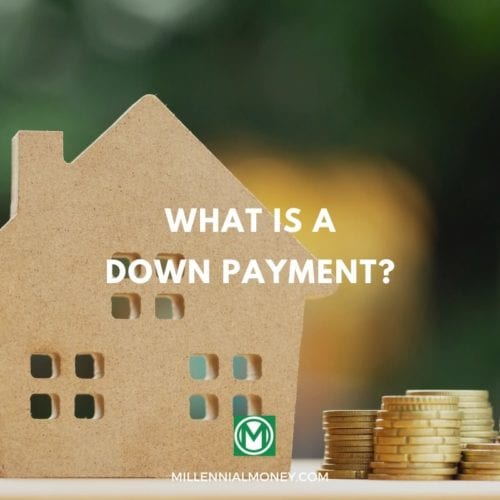USDA loans are probably the least understood by the general home-buying public of all the major mortgage types available, including conventional, Jumbo, FHA, and VA loans. However, they’re actually one of the most valuable mortgage programs available.
USDA loans enable you to purchase or refinance a home using 100% financing, and unlike VA loans, you don’t need to be a veteran to qualify for a USDA loan.
In this article, I’ll introduce you to the best USDA lenders nationwide based on our team’s stringent quality and reputation standards. Each lender will have its strengths and weaknesses highlighted so you can make an informed decision.
After all, there is no one best lender for all consumers––no one size fits all mortgage solution. As such, it’s best to focus on which lender will work best for you, and that will depend entirely on your own needs and preferences.
There are hundreds of USDA-approved lenders around the country, but which is the best for you? Let’s start with the basics, so you can understand the fundamental principles of USDA loans.
10 Best USDA Mortgage Lenders
Here are the best lenders for USDA loans in 2025:
- First Horizon Bank: Best No-Money-Down USDA Home Loan
- AmeriSave Mortgage: Best for Low Fees
- Fairway Independent Mortgage Corporation: Best Variety
- Guaranteed Rate: Best for Good Credit
- LendingTree: Best Marketplace for USDA Loans
- New American Funding: Best for Bad Credit
- PNC Bank: Best for Online Pre-Approval Process
- Truist: Best Traditional Lending
- USAA: Best for Military
- Wells Fargo: Best Big Bank Lender
1. First Horizon
Best For: No-Money-Down USDA Home Loan
First Horizon Bank offers a suite of specialty mortgage programs, including but not limited to USDA loans, VA loans, FHA loans, conventional fixed-rate products, and adjustable-rate mortgages.
Its programs are specially designed to meet the complex needs of a wide array of borrowers so that more Americans can realize their goals of homeownership.
It will lend up to a maximum loan amount of $4 million for borrowers interested in purchasing a new home or refinancing a primary residence they already own. Its USDA loan program is subject to the income and geographic limitations set by the U.S. Department of Agriculture, but its other programs may be a good fit if your chosen property doesn’t qualify.
First Horizon encourages all interested homebuyers to contact a First Horizon Bank Private Client Services Relationship Manager, which is its version of a loan officer.
These representatives are experienced in the ins and outs of First Horizon’s full suite of products and they will advise you on all the necessary steps you need to take to have a smooth loan application process.
Pros
- Works with credit scores down to 640
- Offers a wide variety of loan programs, including FHA and physician loans
- Potentially lower interest rates with easier requirements
- Convenient online application process
- USDA loan product designed for low to moderate-income homebuyers
Cons
- Only available in 12 states
- Website is sparse to encourage borrowers to contact loan officers
- Property requirements and restrictions
- Must purchase in an eligible area
- Strict income requirements
Compare Rates with First Horizon Bank
2. AmeriSave Mortgage
Best For: Low Fees
AmeriSave Mortgage has been in business since 2002. Since then, it has become one of the leading mortgage lenders in the country across all mortgage program types. They provide USDA mortgages, in addition to all other types of mortgage financing. The company operates in 49 states and the District of Columbia (New York is the exception).
AmeriSave enables you to get prequalified online in as little as three minutes. And just as important, they do a soft credit pull that won’t affect your credit score while you’re shopping for a mortgage. In fact, they don’t even request your Social Security number upfront.
AmeriSave has some of the lowest mortgage rates in the industry. They also have a unique guarantee. Either they will save you at least $1,000, or pay you $100. The loan savings will be in the form of closing costs, loan payments, or a combination of the two. The company also reportedly does not charge an origination fee.
Pros:
- Offers all mortgage programs, including USDA loans
- Guarantee to save you money compared to the competition, or they’ll pay you $100
- Operates in 49 states + the District of Columbia
Cons
- Not available to residents of New York
- Only six branches nationwide
- Customer service is only available on weekdays
3. Fairway Independent Mortage Corporation
Best For: Loan Options
Fairway Independent Mortgage Corporation was established in Madison, Wisconsin in 1996 and it has since spread to every U.S. state. Fairway offers a lengthy list of financial services, including a variety of loan options––included in that list is the USDA loan (as well as FHA and VA).
Apply online or in person at one of their 700 locations! Fairway’s USDA loan program offers some standard features including a 30-year fixed rate, low closing costs, interest rates, and low credit requirements.
In addition to its wide variety of services, Fairway takes great pride in its customer support. Even more than support, they aim to advise their customers in finding the best loan option and make sure the sailing is smooth from start to finish. The many locations and licensed employees available around the country are ready to help and make financing with Fairway a great experience.
Pros
- Available in all 50 states
- Wide variety of loans offered
- Over 700 locations
- Easy to apply online
Cons
- High origination fees
- Credit lines for home equity are not offered
4. Guaranteed Rate
Best For: Good Credit
Guaranteed Rate offers quick processing and high approval rates for borrowers with good credit. The company reports 96% of its customers would recommend them to friends and family. This notion is supported by the company’s Better Business Bureau (BBB) rating of “A+,” which is the highest rating on a scale of A+ to F. What’s more, Guaranteed Rate has been BBB accredited since 2009, which speaks to its longstanding reputation of customer satisfaction.
And not only does the company operate across the country, but they also have branch offices in all 50 states, which makes it easier for borrowers to interface with representatives directly. Once again, a local presence can be a major advantage with USDA mortgages, since they can be more involved than other types of loans. That’s in addition to what is generally an all-online application process. Guaranteed Rate gives you the choice of either online or face-to-face in handling your USDA application process.
Like other lenders on this list, Guaranteed Rate provides the full range of mortgage loan products, including conventional, Jumbo, FHA, and VA mortgages, in addition to USDA loans. But they also offer personal loans of up to $40,000 with no fees of any sort. Personal loans can be used for any purpose and are available through Marcus by Goldman Sachs. Personal loans can be a viable step to building your credit if you’re not in the right position to qualify for a loan now, but you’re interested in the future.
Personal loans may not help you with your USDA loan right now, but it’s always good to work with a lender that also provides other financial services. Any good loan officer will work with you to help you qualify for a loan in the future if you can’t get approved today.
Pros
- All-online application process or face-to-face – it’s your choice
- Fast loan approval for good or excellent credit
- Branches in all 50 states
- Also offers personal loans
Cons
- Fees may be higher than average
5. LendingTree
Best: Marketplace for USDA Loans
LendingTree is not a direct lender, but they can point you to the largest number of USDA-approved lenders in your area. LendingTree’s database can be important because some of the best USDA lenders are small, local companies that you may otherwise struggle to find.
LendingTree is an online lending marketplace, including for mortgages. It will give you an opportunity to find the largest number of USDA-participating lenders in your area. From there, you’ll be able to select the lender offering the best combination of rate and convenience.
Be careful, however, because lenders offering the lowest rates and fees are not necessarily the best for USDA loans. If you require special handling, you’ll need to work with the ones that have the most extensive expertise. You’ll likely find some of the lenders included on this list when you search LendingTree. If not, be sure to check them out with the local Better Business Bureau to make sure they have a good reputation.
One of the big advantages of working with LendingTree is that the site can also help you to find other types of financing. That includes auto loans, personal loans, student loans, and credit cards. It’s an excellent lending marketplace for any consumer to become familiar with.
Pros
- Access to multiple lenders
- All types of mortgage loans are available, including USDA loans
- Other personal and business loans are also available
- No cost to use
Cons
- May include lenders with less than top reputations
- Not a direct lender
6. New American Funding
Best: Lender for Impaired Credit
New American Funding is a nationwide mortgage lender with a reputation for working with mortgage borrowers who have impaired credit.
That doesn’t mean you can be approved for a USDA loan with poor credit. USDA does require a minimum credit score of 640 – which is hardly poor credit – at least if you want to get a fairly quick approval. If your credit score is lower, you’ll need to go through a manual underwriting process. That may require submitting additional documentation and a longer time in underwriting. It also won’t guarantee loan approval.
But if you do have impaired credit, and you want a USDA mortgage, New American Funding is the go to-lender. One of New American Funding’s biggest advantages is that they take a hands-on approach to mortgage processing, and mostly underwrite loans manually anyway. Manual underwriting adds a human touch to the process and it can be easier for borrowers with complex situations to qualify through this path
In addition, they offer all other types of mortgage loans, just in case you ultimately decide to go a different route.
Like many of the other mortgage lenders on this list, New American Funding has an “A+” rating with the Better Business Bureau.
Pros
- One of the strongest USDA lenders in the country
- Offers a hands-on approach for complicated loan types, like USDA loans
- Manual underwriting process for lower credit scores
- Works with the Spanish-speaking community
Cons
- Not available in New York or Hawaii
7. PNC Bank
Best For: Online Pre-Approval Process
PNC, based in Pittsburgh, Pennsylvania, is one of the largest financial service groups in the United States. The company offers many financial services to best suit your needs, including USDA loans. Their subsidiary, PNC Bank, has over 2,600 locations and around 60,000 ATMs in 27 states (and the District of Columbia)––making it the ninth-largest bank in the U.S.
PNC does have great success with helping small businesses, but they can help your personal finances as well. Whether it’s for purchasing a new property or refinancing an existing/approved loan, there is no down payment, and closing costs can be rolled into the transaction when you choose PNC. Another huge perk of their USDA home loan program, you could also qualify for up to $5,000 off the closing costs!
Every American has access to PNC’s services, but if you happen to live in a state where they have physical locations and support, their financial services will be even more readily available.
Pros
- 60,000 no-fee ATMs and over 2,600 locations.
- Very small business friendly
- Desktop and mobile apps available
Cons
- Interest rates vary due to the borrower’s location in the country
- High overdraft fees
8. Truist
Best For: Traditional Lending
Truist Financial Corporation was established in Charlotte, N.C. The bank was formed when SunTrust and BB&T merged in 2019. Truist offers a wide range of services including USDA loans. Among other services, they offer personal banking, commercial banking, mortgage financing, and asset management.
With almost 3,000 branches (primarily east coast locations) in 15 states and the District of Columbia, it is one of the country’s largest banks. Truist is also one of the largest insurance brokers in the world with over $2 billion in annual revenue.
Truist Bank takes pride in its customer service and advice. They can talk to you about options that best fit your financial situation. If you are pinched for time and can’t make it to a branch, check out their easy-to-use and very proficient website and mobile app.
Pros
- Extensive financial services offered
- Over 3,000 branches
Cons
- High overdraft fees (but can be avoided)
- Checking withdrawals from a non-Truist ATM has a $3 fee
- Low savings account interest
- Physical Branches are mostly restricted to the east coast
9. USAA
Best For: Military Families
Though USAA is best known for VA mortgages, they provide other types of mortgage financing, including conventional mortgages and USDA loans.
USAA works strictly with current and former members of the military. You must be either active-duty military or an honorably discharged veteran, or a family member of either, to be eligible to use the services of the company. And while they primarily offer VA mortgages, they recognize veterans may be better served with other types of loans, including USDA loans.
This is important because while both VA and USDA loans provide 100% financing, USDA loans offer lower interest rates if a veteran can qualify under program guidelines. They can be especially valuable if a rural property needs significant renovations.
Still another advantage of USAA is that they are not strictly a mortgage lender. They also provide all types of insurance, banking services, investments, retirement plans, credit cards, personal loans, and even health insurance and wealth management.
In the J.D. Power 2019 U.S. Primary Mortgage Origination Satisfaction Survey (released November 2019), USAA outscored every other mortgage lender in the survey, with 900 out of 1,000 points.
Pros
- Designed specifically for the military, veterans, and their families.
- Specializes in VA loans, but also handles USDA and conventional mortgages
- Other financial services available
- Operates in all 50 states
- Customer service is available 7 days a week
Cons
- Not available to those who are not connected to the US military
- Limited branch availability
10. Wells Fargo
Best: Big Bank Lender
Wells Fargo is not only one of the biggest banks in the country, but they’re also one of the leading mortgage lenders. They’re a major provider of USDA mortgages, along with virtually every other type of mortgage program.
But what sets Wells Fargo apart from other lenders, particularly in the USDA space, is its vast branch network. They have thousands of branches across the country.
The wide branch can be particularly significant when it comes to USDA loans because they are more complicated than other common mortgage types, so it’s important to choose a lender with extensive experience in the area you’re looking to buy. This consideration is particularly important when you’re navigating borrower qualifications and property specifications.
The availability of local branches means you can enjoy the benefit of face-to-face contact throughout the loan process. And as a bank, Wells Fargo also provides full-service banking.
That can be an important addition to any new homeowner’s financial repertoire. You can open checking, savings, and other accounts, and even make mortgage payments at a local bank branch.
Pros
- Offers all mortgage programs, including USDA
- Most brick-and-mortar branches of any mortgage lender (over 5,000 locations)
- Offers a complete line of banking services
- Customer service is available 7 days a week
Cons:
- Not available in all 50 states
What Is a USDA Loan?
A USDA loan is a government-backed loan program provided by private lenders, banks, and credit unions. The U.S. Department of Agriculture insures these loan programs so lenders can offer more lenient qualifying terms to low and moderate-income borrowers who may otherwise be barred from homeownership.
Because it is insured by the government, there is less risk for the lender so underwriting is often more flexible and understanding of unique financial situations.
These programs often have significantly lower interest rates than conventional loans due to the minimal risk the lender has to take on. In many cases, borrowers can purchase a new home or refinance a property they already own with no money down.
As of April 2023, the USDA loan interest rates are as low as 6% while conventional loans are currently more than 7% for a 30-year fixed-rate mortgage.
USDA Loan Eligibility
USDA loans have a few standard eligibility requirements borrowers must meet before they can qualify for special financing options. We have outlined those eligibility requirements below so you can be prepared when you fill out your loan application:
- Residency requirement: Current U.S. citizen or legal permanent resident (Green Card or H1-B visa holders qualify)
- Credit score requirement: Minimum 640 credit score and sufficient credit history
- Reliable income: Proven income history (tax returns, pay stubs, or W-2s)
- Income limit: Household income is equal to or less than 115% of the median income for the area
- Qualifying property: Must be used to purchase a primary residence in a qualifying rural area
- Debt-to-income ratio: DTI must be 41% or lower
USDA loans are not a specific program from a specific lender. Instead, they are government-backed home loan programs that private lenders and credit unions offer to borrowers that meet their underwriting guidelines.
Every lender will have its own requirements, so it’s important to shop around, do your due diligence, and compare loan options to find the program that meets your needs.
Choosing a USDA Mortgage Lender
The criteria I used in coming up with this list of the best USDA lenders are similar to what you should use in your own search – should you decide to use other lenders.
If so, keep the following in mind in your search:
1. Consider a USDA Loan Specialist
Be careful that you don’t search for companies that are considered top-of-the-line in other mortgage types. Even if a company is the best in your area for conventional financing, it may have very little experience with USDA loans.
Part of the problem is that many mortgage lenders are set up to do mortgages primarily in metropolitan areas. Those are very different markets from rural areas more commonly served by USDA loans. Even though USDA loans are available in most counties in the US, including most of those in large metropolitan areas, the emphasis is almost always on conventional, Jumbo, FHA, and VA mortgages.
USDA loans have a combination of very specific borrower requirements and property requirements.
2. Find a Lender That Specializes in USDA Mortgages
Just because a bank or mortgage lender provides mortgages doesn’t mean they offer USDA loans. And many more do, but don’t emphasize them. In fact, many do so few USDA loans that rates for the program aren’t even included on their rate sheets.
The lenders I’ve included on our list provide all types of common mortgage financing, as well as USDA loans, and generally on either a national or near-national basis. That won’t be true of all lenders.
One of the worst outcomes is working with a mortgage company that does very few USDA loans, turning you into something of a test case, either for the local branch or the loan officer you’re working with.
Any mortgage lender you choose to work with should come with recommendations, either from others who have done USDA loans with that company, or from various websites indicating as much.
3. Be Upfront About Your Interest in USDA loan Products
Since very few mortgage representatives have any serious experience with USDA loans, they may never suggest that you take one. You’ll need to request it upfront specifically in many cases if you’re interested.
If the representative attempts to steer you away from a USDA loan, it may be that he or she has no experience with the program. If so, either ask to be directed to someone in the organization who specializes in USDA loans or plan to take your business elsewhere.
The USDA maintains a list of active and approved lenders who can help you on your home-buying journey.
This is why it’s so important to make it clear at the very beginning that you specifically want a USDA loan.
4. The Lender Should Offer Other Mortgage Programs
Because the specifications for USDA loans are so detailed, there’s a good chance either you or the property you’re purchasing or refinancing won’t meet program guidelines.
That’s why every lender on this list provides other types of mortgage financing. If you don’t qualify for a USDA loan, you’ll need alternative options and expert advice to point you in the right direction.
How to Apply for a USDA Loan
There are a few necessary steps borrowers must take to ensure a smooth loan application process. Here’s what you can expect:
- Prequalify for your loan: This step is less formal than a preapproval, but it gives you a good idea of what your budget and loan amount are likely to be.
- Get pre-approved: Pre Approval goes deeper into your debt-to-income (DTI), income, and work history. It is typically valid for 90 days, so you’ll want to wait for this step until you’re serious about putting in an offer. You’ll want to have your identification, pay stubs, and bank statements available for this step.
- Shop for a USDA-approved home: USDA financing is only eligible for single-family homes in specific suburban and rural areas, so you’ll want to make sure you’re looking in the right places. We recommend working with a Realtor experienced with USDA loans.
- Put in an offer and provide a purchase agreement: The purchase agreement triggers a USDA appraisal, which determines the home is move-in ready, maintained, and meets USDA standards.
- Go through underwriting: During this process, your lender will look carefully at all the materials you provided on your application, verify all information is truthful, and address any lingering questions.
- Close and move into your home: At this step you’ll pay any final closing costs, sign the necessary paperwork, and take possession of your new home.
Pros and Cons
Like any home loan program, USDA loans have pros and cons. We’ve prepared a few of the benefits and downsides so you can make a balanced decision about your financial future.
Pros
- Zero money down financing options: Many borrowers can qualify for 100% financing with a USDA loan.
- No cash reserve requirements: Unlike conventional loans, USDA loans don’t require specific cash reserves ahead of closing.
- Seller-paid closing costs: In some cases, sellers may contribute to the closing costs, which can further reduce the upfront costs of homeownership for low-income borrowers
- Fixed-rate 30-year loan term: USDA loans offer competitive interest rates that won’t overly inflate borrowers’ monthly payments
- Can be used to purchase or refinance: Loans may be used to purchase a new property or refinance a property you use as your primary residence
- No penalty for prepayment: If you choose to make additional payments to pay off your loan early, you won’t be subject to penalties
- Construction loans available: USDA loans may be used to build a new home on a lot
- Not exclusive to first-time home buyers: The loan program is open to all U.S. citizen borrowers, even if they’ve previously owned a home.
Cons
- Restricted to specific rural or suburban areas: Properties must be within the USDA’s location eligibility requirements
- Income limits: Borrowers must be considered low to moderate-income to qualify
- Must be used for a single-family home: USDA loans are only available for single-family homes, condominiums, and duplexes are excluded
- USDA upfront guarantee fee: This fee is typically 1% of the total loan amount to cover the costs of processing the loan.
- USDA annual guarantee fee: This fee is typically 0.35% of the total loan amount spread out over your monthly payments.
Who Is The Best USDA Lender For You?
Because USDA loans have very specific requirements and not all lenders offer them, it’s important that you be patient in both the search for a lender and with the application process itself. In your homeownership process, we recommend being picky and patient. Remember, this home may be your forever home, so you should feel confident in your choices.
That’s why it’s so important to rely on a list of the best USDA lenders, like this one. It will at least eliminate the search part of the equation. We’ve thoroughly vetted dozens of mortgage lenders across the country so you can enter this next phase of your life with a loan program that meets your wants and needs.
Once you submit an application, do so with a large dose of patience and a willingness to cooperate at every turn. It’s likely that any lender will have questions throughout the process and you’ll want to be prepared with answers and the necessary documentation to make sure your approval process is simple.
USDA loans are more document-intensive and there are more requirements than conventional loans. As such, the approval process may very well take longer than the usual 30 days for other types of loans.
But work with an experienced lender, be ready to provide all documentation required, and be prepared for the time it will take. With all the advantages USDA loans offer, it’ll be well worth the wait.
The best USDA lender for you will be experienced in the geographic location you’re purchasing in, has processed USDA loans in the past, and has been upfront with you at every step in the process.
Don’t be afraid to ask questions, shop around, and get approved by multiple lenders to find the best home loan and interest rate.





No comments yet. Add your own